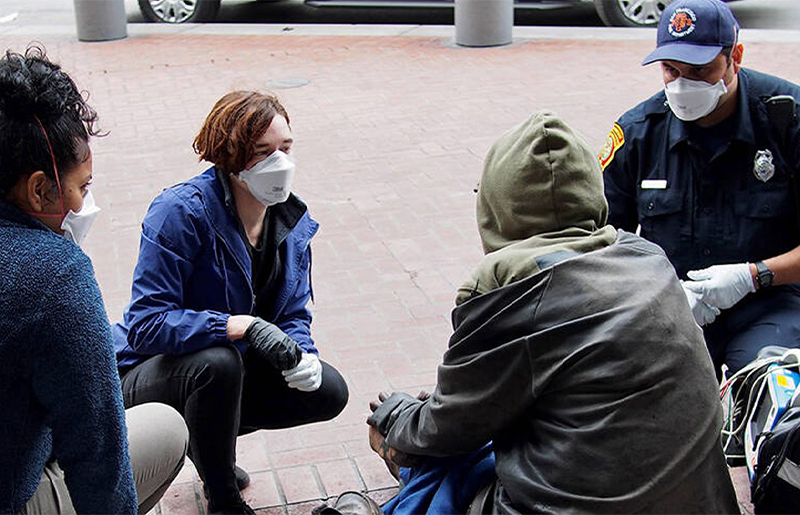
Texana Center Tackles Economic Toll of State-Wide Mental Health Crisis in Fort Bend County
Mental health is no longer a silent crisis—it’s an economic and social emergency affecting families across Texas. With one in five U.S. adults experiencing mental illness annually, communities like Fort Bend County are increasingly feeling the ripple effects. From strained public services to lost productivity and increased incarceration rates, the consequences extend beyond individual suffering. At the forefront of the response in Fort Bend is Texana Center, a nonprofit and Local Mental Health Authority dedicated to ensuring that even the most vulnerable residents can access mental health support.
The Cost of Unmet Mental Health Needs in Texas
According to the National Alliance on Mental Illness (NAMI), over 800,000 Texas adults went without needed mental health care last year. Nearly half of those cited cost as the primary barrier. In a state where 18.4% of the population remains uninsured, the economic burden of untreated mental illness is profound—not only for the individual but for the broader healthcare, education, and criminal justice systems.
Economic strain often creates a vicious cycle. “Financial burdens can trigger the development of mental disorders,” explains Dr. Forrestine Dickson Knowles, a psychiatrist with Texana Center. “The inability to afford medication or therapy can prevent patients from seeking or continuing treatment. Patients may even forgo necessary care to cover basic needs.”
The results are staggering: higher dropout rates, rising homelessness, and over-representation of individuals with mental illness in the criminal justice system. A tragic statistic underscores the urgency—someone in the U.S. dies by suicide every 11 minutes.
Mobile Sidebar Ad
Texana Center: A Safety Net for Fort Bend County
Texana Center, headquartered in Rosenberg, Texas, plays a critical role as both the Local Mental Health Authority and Local Intellectual and Developmental Disability Authority for Fort Bend County and five surrounding counties. Each year, more than 16,000 individuals rely on Texana’s services, which span crisis response, outpatient care, developmental support, and vocational training.
“We assess financial hardship as part of our intake process and continue to monitor patients' needs, doing all we can to ease the burden of accessing quality mental healthcare,” says Dr. Knowles. The center’s income-based fee structure means that care may be available at no cost to families. However, even reduced fees can prove challenging for some.
Crucially, Texana Center currently maintains no waitlist for services—a rare distinction in a state where mental health services are often delayed due to underfunding. But Dr. Knowles warns, “Without continued funding by the Texas legislature, waitlists for these critical outpatient services will significantly impact access to care.”
Expanding Access and Recognizing Early Signs
Texana’s work extends beyond clinical care to community education and prevention. Public awareness is vital to halting mental health crises before they escalate.
“Early education is critical—we must teach community members to recognize these signs,” urges Dr. Knowles. Symptoms like excessive sadness, confused thinking, substance abuse, and extreme mood swings often go unnoticed until it’s too late. “If you notice something concerning, don't assume—talk to others, ask questions, and report to a trusted source. Seek professional help as soon as possible.”
Resources like the NAMI Warning Signs Guide and the 988 Suicide & Crisis Lifeline offer crucial support and guidance.
Texana also collaborates with schools, law enforcement, and social services through initiatives like the Youth Empowerment Services (YES) Waiver and the Turnaround Program, helping prevent juvenile recidivism and support at-risk youth. These wraparound services are central to the center’s mission of early intervention and long-term well-being.
Mobile Sidebar Ad
Looking Forward: Policy and Prevention
The economic impact of mental illness demands not only clinical support but systemic change. The recently released Texas Children’s Behavioral Health Strategic Plan (2025–2029) calls for a stronger infrastructure, improved insurance coverage, and early intervention across the state’s youth population—an investment in long-term public health and economic stability.
For adult populations, Dr. Knowles advocates for expanded telemedicine, income-sensitive assistance programs, and a more realistic reassessment of poverty thresholds. “We need more support of effective and established programming in our communities,” she says. “It’s time to reassess how we identify needs given our current economic climate.”
As Mental Health Awareness Month approaches, Texana Center continues to stand as a critical lifeline in Fort Bend County—an example of what’s possible when access, empathy, and public support align. Addressing the mental health crisis is not just a moral obligation—it’s an economic imperative.
If you or someone you know is struggling, help is available. Call or text 988 or visit 988lifeline.org for 24/7 support.
 Tiffany Krenek has been on the My Neighborhood News team since August 2021. She is passionate about curating and sharing content that enriches the lives of our readers in a personal, meaningful way. A loving mother and wife, Tiffany and her family live in the West Houston/Cypress region.
Tiffany Krenek has been on the My Neighborhood News team since August 2021. She is passionate about curating and sharing content that enriches the lives of our readers in a personal, meaningful way. A loving mother and wife, Tiffany and her family live in the West Houston/Cypress region.

